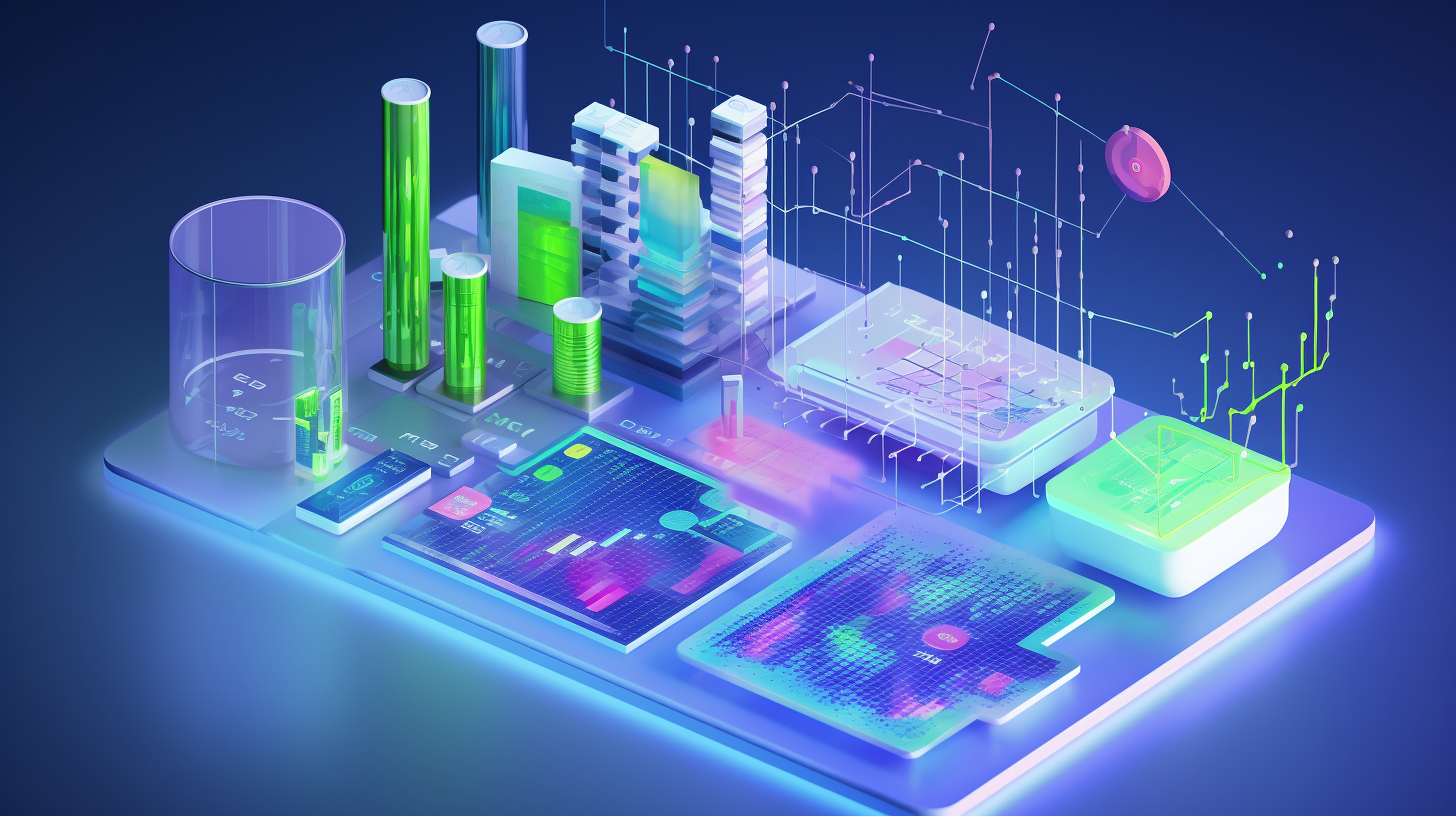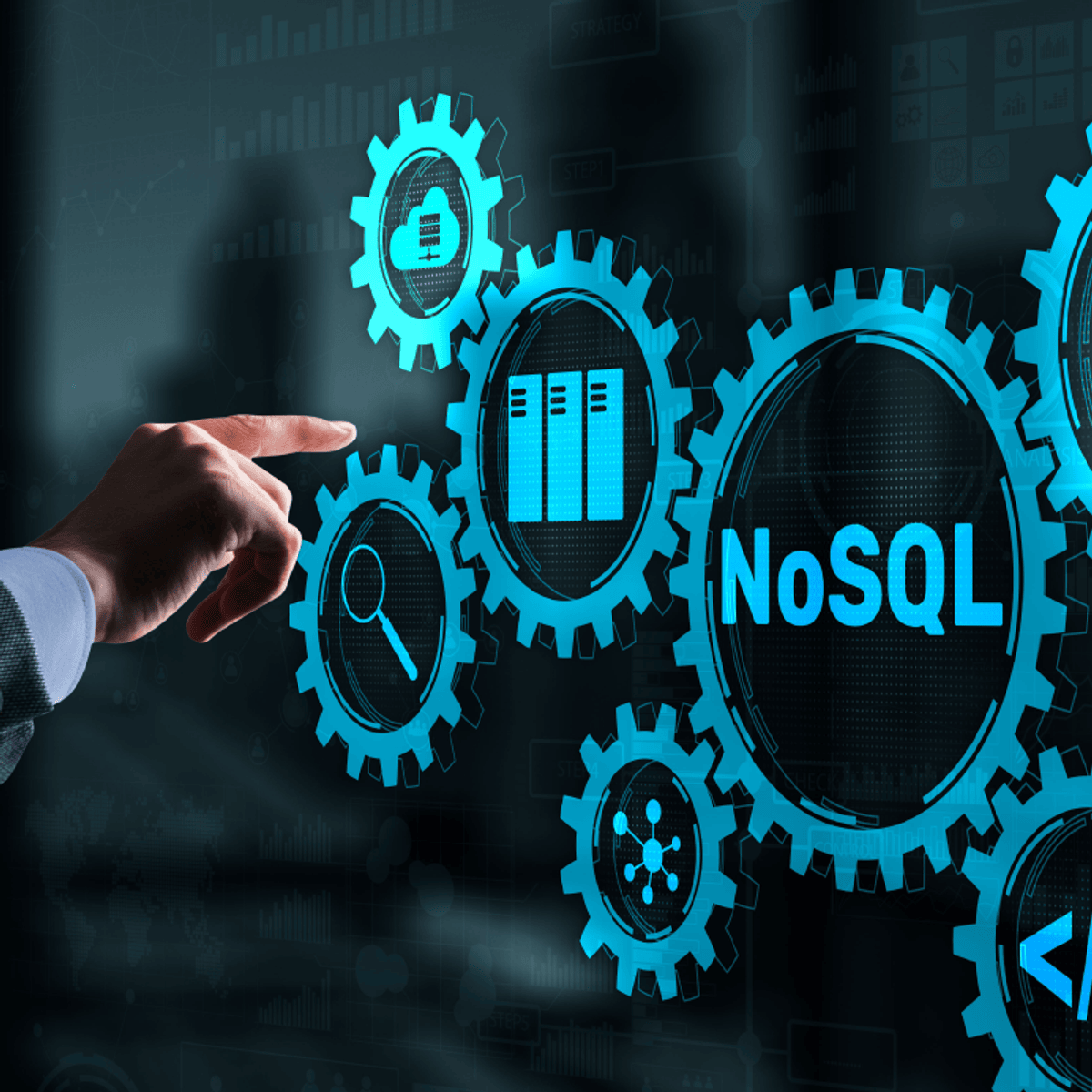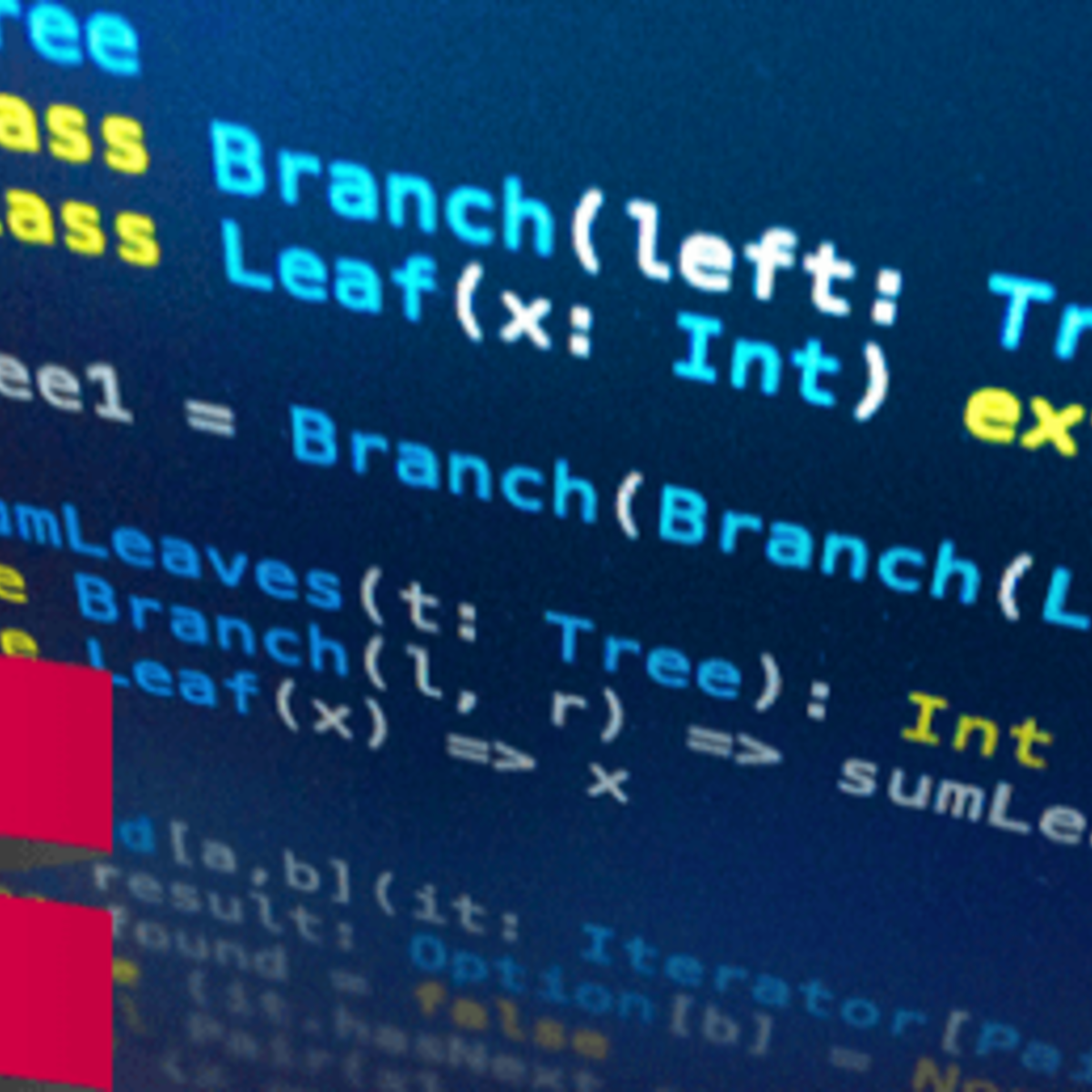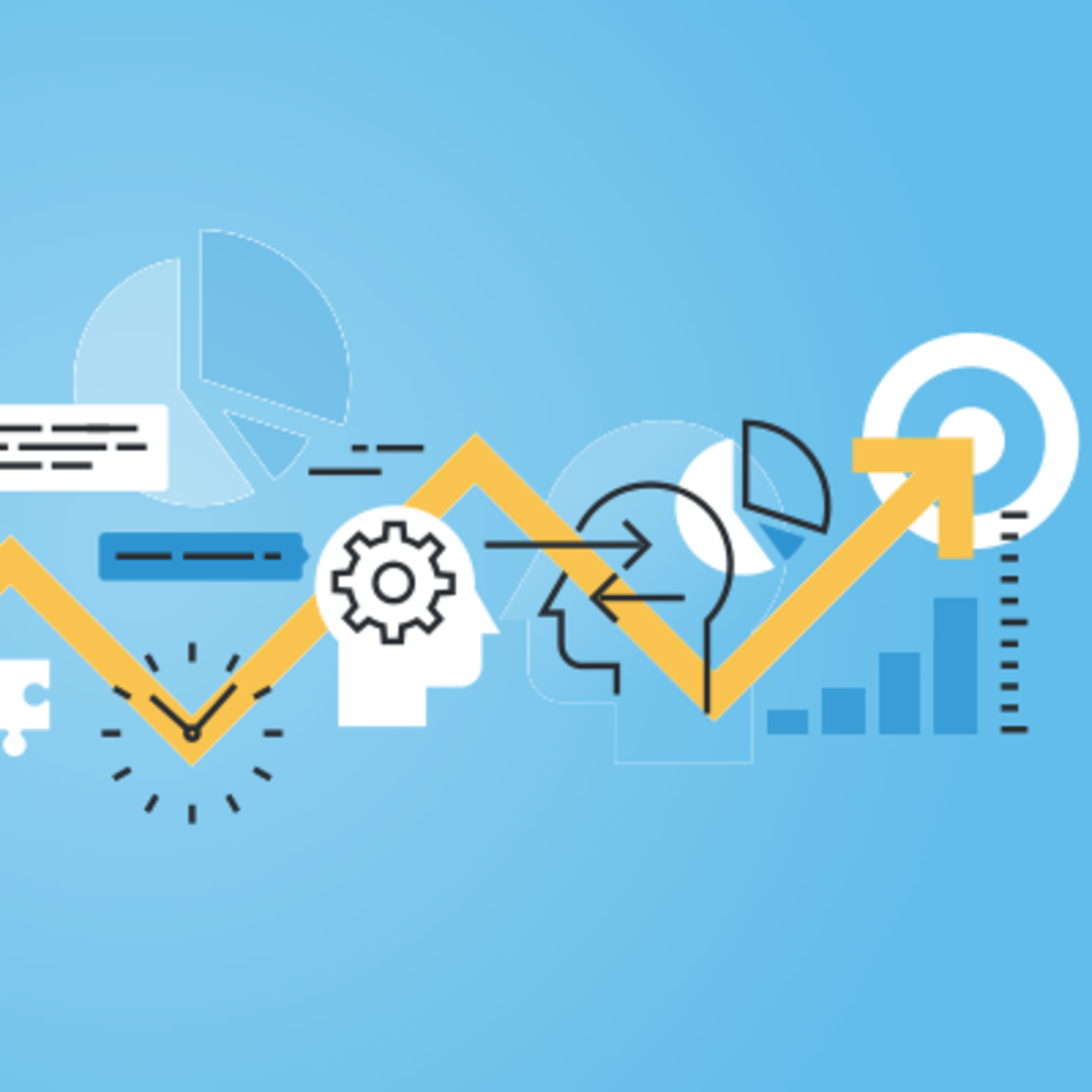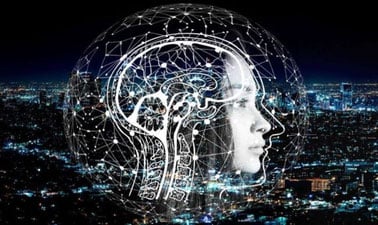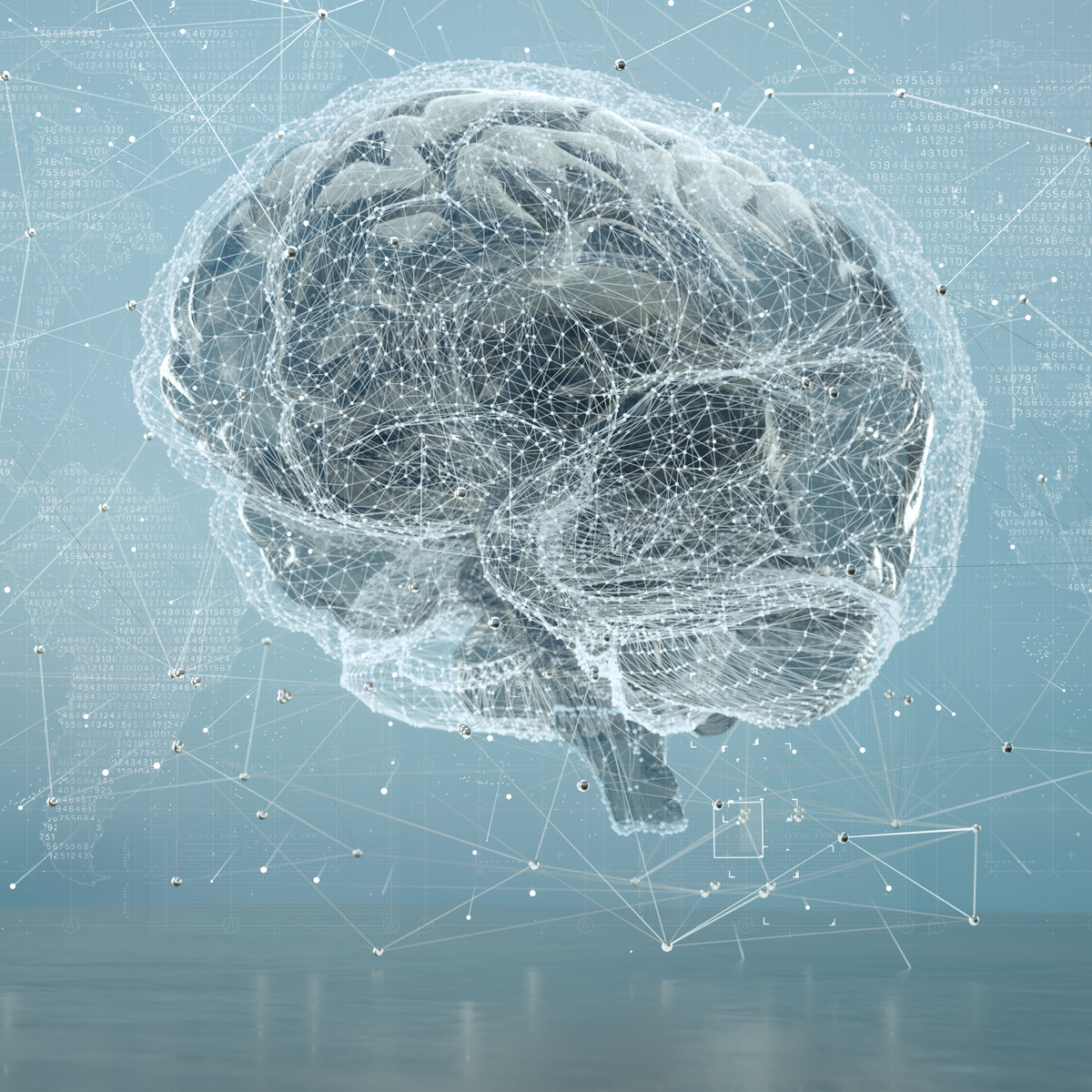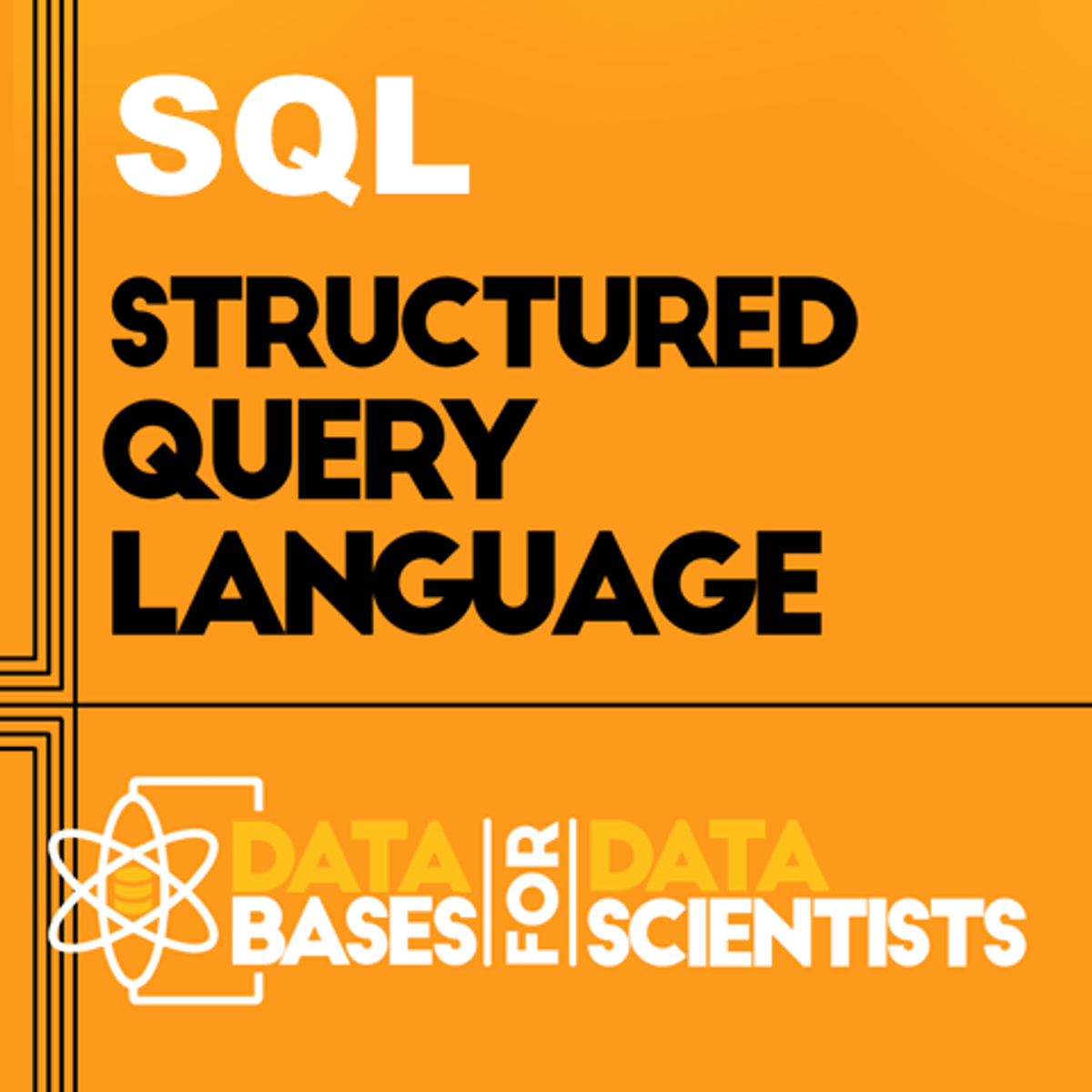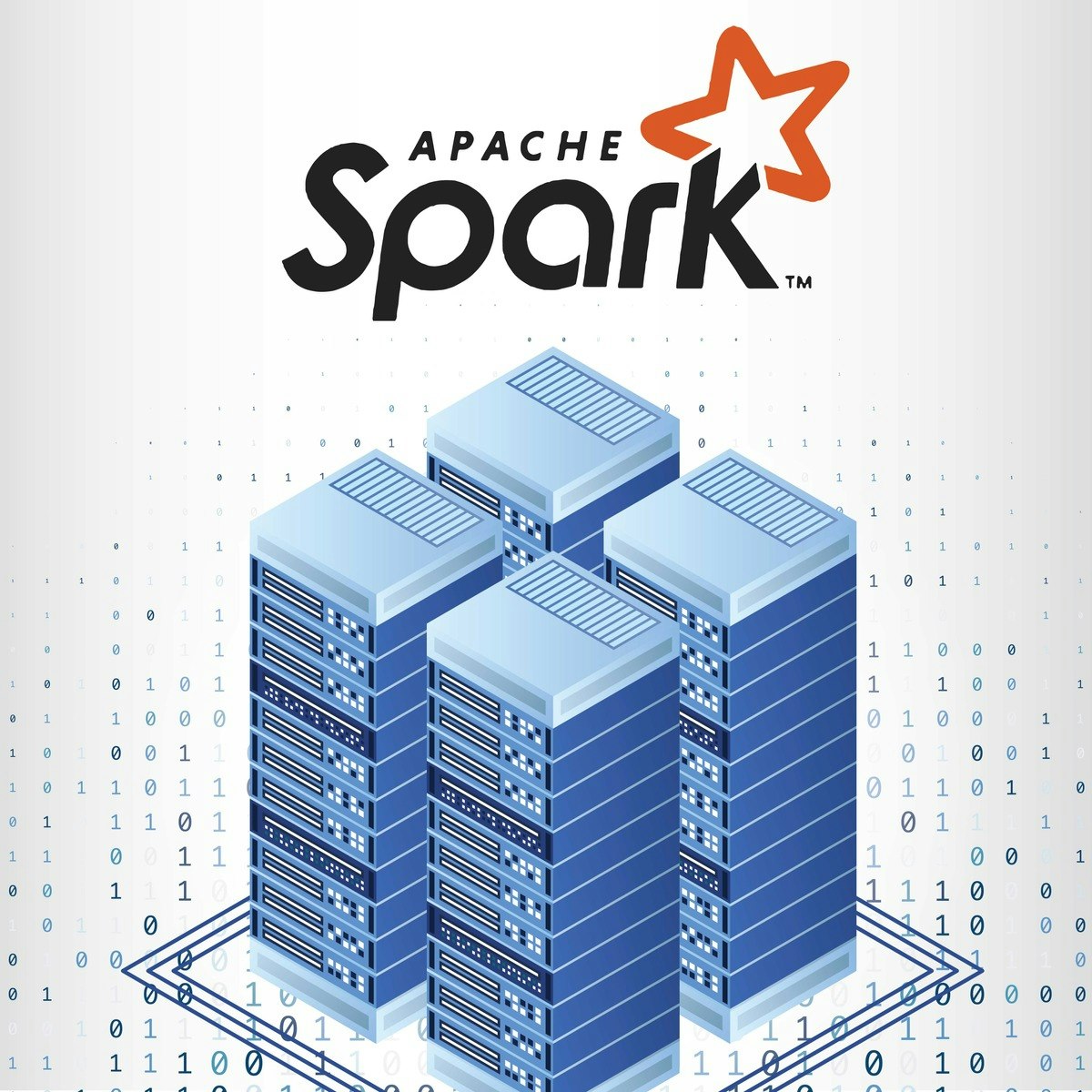Big Data
Understanding Big Data: A Comprehensive Guide
Big Data refers to extremely large and complex datasets that traditional data processing software cannot adequately handle. It's characterized not just by sheer size, but also by the speed at which data is generated and the variety of formats it comes in. Think about the constant stream of posts on social media, the readings from sensors in smart cities, or the transaction records of a global e-commerce site – these are all examples generating vast amounts of information every second. Understanding Big Data is becoming increasingly crucial in a world driven by information.
Working with Big Data involves more than just managing large volumes; it's about extracting meaningful insights from this complex information. Professionals in this field develop systems to collect, store, process, and analyze data, often using specialized tools and techniques. The excitement lies in uncovering hidden patterns, predicting future trends, and enabling data-driven decisions that can transform businesses and research. Imagine building systems that personalize online experiences in real-time or predict equipment failures before they happen – these are the kinds of impactful challenges Big Data professionals tackle.
Key Concepts and Terminology
To navigate the world of Big Data, understanding its fundamental concepts and vocabulary is essential. These terms form the basis for discussing the technologies, challenges, and opportunities within the field.
Structured vs. Unstructured Data
Data comes in many forms. Structured data is highly organized and easily searchable, typically residing in relational databases or spreadsheets. Think of customer records with clearly defined fields like name, address, and purchase history. It follows a predefined model, making it straightforward to query and analyze using traditional tools like SQL.
Unstructured data, conversely, lacks a predefined format. Examples include emails, social media posts, images, videos, and audio files. This type of data makes up the vast majority of information generated today. Analyzing unstructured data requires more advanced techniques, often involving natural language processing (NLP) for text or computer vision for images, to extract meaningful information.
There's also semi-structured data, which doesn't conform to the rigid structure of relational databases but contains tags or markers to separate semantic elements. Examples include JSON or XML files. Big Data technologies are designed to handle all three types – structured, unstructured, and semi-structured – effectively.
Data Lakes vs. Data Warehouses
Organizations need places to store their vast amounts of data. Two common storage paradigms are data lakes and data warehouses, serving different purposes. A data warehouse primarily stores structured, processed data that has been cleaned and modeled for specific business intelligence and reporting tasks. It's like a well-organized pantry where ingredients are prepared and labeled for specific recipes (reports).
A data lake, on the other hand, is a vast repository that holds raw data in its native format, including structured, semi-structured, and unstructured data. It's more like a large, versatile lake where you can store anything – raw ingredients, fishing gear, boats – without needing to prepare it beforehand. Data lakes offer flexibility, allowing data scientists and analysts to explore raw data for various purposes, often applying processing (schema-on-read) only when needed for analysis. They are particularly useful for exploratory analytics and machine learning tasks that benefit from access to unprocessed data.
Modern architectures often blend these concepts, leading to terms like "data lakehouse," which aims to combine the flexibility of a data lake with the data management and structure features of a data warehouse.
These courses provide a solid introduction to the fundamental concepts and terminology used in the Big Data landscape.
Distributed Computing Fundamentals
Handling Big Data often exceeds the capabilities of a single computer. Distributed computing is the solution. It involves using multiple computers (nodes) networked together to work on a single problem collectively. Instead of one powerful machine doing all the work, the task is broken down into smaller pieces, distributed across the network of nodes, processed in parallel, and the results are combined.
This approach provides scalability – if you need more processing power, you can add more nodes to the cluster. It also offers fault tolerance – if one node fails, the system can often continue operating by redistributing the work. Frameworks like Apache Hadoop and Apache Spark are built on distributed computing principles, enabling the processing of massive datasets across clusters of commodity hardware.
Think of it like a group project. Instead of one person writing an entire large report, the work is divided among team members who write different sections simultaneously. The final report is assembled by combining the individual contributions. This is faster and more resilient than relying on a single person.
Batch Processing vs. Real-Time Streaming
There are two primary modes for processing Big Data: batch processing and real-time streaming. Batch processing involves collecting data over a period (e.g., hours or days) and then processing it in large chunks or batches. This method is efficient for large volumes of data where immediate results aren't critical, such as generating monthly financial reports or analyzing historical trends. Frameworks like Hadoop MapReduce are traditionally associated with batch processing.
Real-time streaming (or stream processing) involves analyzing data continuously as it is generated, often within milliseconds or seconds. This is crucial for applications requiring immediate insights or actions, such as fraud detection in financial transactions, real-time bidding in online advertising, or monitoring sensor data from industrial equipment. Frameworks like Apache Spark Streaming, Apache Flink, and Apache Kafka Streams are designed for stream processing.
Choosing between batch and streaming depends on the specific use case and the required latency for insights. Many modern systems employ a hybrid approach, using both batch and streaming pipelines to handle different data needs within an organization.
Understanding these processing paradigms is crucial for designing effective Big Data solutions.
Historical Evolution of Big Data
The concept of collecting and analyzing large datasets isn't entirely new, but the scale and speed associated with "Big Data" are relatively recent phenomena, driven by technological advancements.
Pre-digital Era Statistical Analysis
Long before computers, humans collected and analyzed data. Governments conducted censuses (like the ancient Egyptians using data for taxation and predicting Nile floods), businesses tracked ledgers, and scientists recorded observations. Early statistical methods were developed to draw inferences from limited data samples. Herman Hollerith's tabulating machine, developed for the 1890 US Census, used punch cards to automate data processing, representing an early milestone in large-scale data handling, albeit far from today's "Big Data." These early efforts laid the groundwork for systematic data analysis but were constrained by manual methods and limited storage.
The focus was primarily on analyzing structured, tabular data collected through surveys or experiments. The volume was manageable by human calculation or early mechanical aids. The challenges were different – primarily focused on collection methods and the development of statistical theory to extract meaning from relatively small datasets, rather than managing overwhelming volume and velocity.
Understanding this history provides context for how data analysis principles evolved before the digital explosion.
Moore's Law and Storage Cost Reductions
The digital revolution dramatically changed the landscape. Moore's Law, the observation that the number of transistors on integrated circuits doubles approximately every two years, led to exponential increases in computing power. Simultaneously, the cost of digital storage plummeted. Storing vast amounts of data became economically feasible for more organizations.
This combination of increased processing power and cheap storage removed many of the physical constraints that had previously limited data collection. Businesses started retaining more transactional data, scientists generated massive datasets from simulations and experiments (like the Human Genome Project), and the rise of the internet began generating unprecedented user activity logs.
This era saw the growth of relational databases and data warehousing techniques to manage and analyze the growing volumes of structured data. However, the seeds of the Big Data explosion were sown as the sheer volume started to challenge traditional database architectures.
The Open-Source Movement (Hadoop Ecosystem)
Around the early 2000s, companies like Google faced the challenge of indexing the rapidly expanding World Wide Web – a task involving petabytes of unstructured and semi-structured data that traditional databases couldn't handle efficiently. They developed new paradigms like MapReduce (for parallel processing) and the Google File System (GFS, for distributed storage). These concepts inspired the creation of open-source projects.
Apache Hadoop emerged as a key open-source framework implementing these ideas. It included the Hadoop Distributed File System (HDFS), mimicking GFS, and MapReduce. This allowed organizations to process massive datasets using clusters of inexpensive commodity hardware. The Hadoop ecosystem grew rapidly, incorporating tools like Hive (for SQL-like querying), Pig (for data flow scripting), HBase (a NoSQL database), and Sqoop (for data transfer).
The open-source nature of Hadoop democratized Big Data technologies, making them accessible beyond a few tech giants and fueling innovation across various industries.
Learning about Hadoop and its ecosystem remains valuable for understanding the foundations of many Big Data systems.
Cloud Computing's Transformative Role
The advent of cloud computing platforms like Amazon Web Services (AWS), Microsoft Azure, and Google Cloud Platform (GCP) marked another significant transformation. Cloud providers offered scalable, on-demand computing power and storage, eliminating the need for organizations to invest heavily in their own physical data centers.
Cloud platforms provide managed Big Data services (like Amazon EMR, Azure HDInsight, Google Dataproc for Hadoop/Spark clusters; AWS Redshift, Azure Synapse Analytics, Google BigQuery for data warehousing; various NoSQL databases and data lake storage options). This drastically lowered the barrier to entry for implementing Big Data solutions, allowing smaller companies and startups to leverage powerful analytics capabilities.
Furthermore, the cloud facilitated the integration of Big Data processing with other advanced technologies like machine learning and artificial intelligence, offering pre-built models and scalable infrastructure for training and deployment. Today, most modern Big Data architectures leverage cloud services extensively.
Understanding cloud platforms is now essential for working with Big Data.
Big Data Applications and Use Cases
The true value of Big Data lies in its application across diverse industries to solve complex problems, improve efficiency, and create new opportunities. By analyzing vast datasets, organizations gain insights that were previously unattainable.
Predictive Maintenance in Manufacturing
In manufacturing, sensors on machinery constantly generate data about temperature, vibration, pressure, and other operational parameters. Analyzing this stream of Big Data allows companies to predict potential equipment failures before they occur. This shift from reactive or scheduled maintenance to predictive maintenance minimizes downtime, reduces repair costs, optimizes spare parts inventory, and enhances overall operational efficiency.
For example, an airline can analyze sensor data from jet engines to anticipate maintenance needs, scheduling repairs during planned downtime rather than experiencing costly and disruptive failures mid-operation. Similarly, energy companies can monitor wind turbines or power grid components to predict faults and ensure reliable service delivery.
This application highlights how Big Data transforms traditional industries by leveraging real-time sensor information for proactive decision-making.
Algorithmic Trading in Finance
The financial services industry heavily relies on Big Data for algorithmic trading. High-frequency trading (HFT) firms use complex algorithms to analyze massive amounts of real-time market data (stock prices, news feeds, social media sentiment, economic indicators) to make trading decisions in fractions of a second. These algorithms identify fleeting arbitrage opportunities or predict short-term price movements.
Beyond HFT, Big Data analytics is used for risk management (analyzing portfolio exposure across various market scenarios), fraud detection (identifying anomalous transaction patterns), credit scoring (assessing borrower risk using a wider range of data sources), and personalized financial advice. The ability to process and analyze diverse data streams at high velocity is critical for competitiveness and regulatory compliance in finance.
Financial institutions leverage Big Data to gain a competitive edge and manage complex risks in dynamic markets.
Personalized Medicine Applications
Healthcare is another sector profoundly impacted by Big Data. Analyzing large-scale patient data – including electronic health records (EHRs), genomic sequences, medical imaging, and data from wearable health monitors – enables the development of personalized medicine. Doctors can tailor treatments to individual patients based on their genetic makeup, lifestyle, and specific disease characteristics, leading to more effective therapies and fewer side effects.
Big Data also fuels epidemiological research (tracking disease outbreaks and identifying risk factors across populations), drug discovery (analyzing clinical trial data and molecular interactions to accelerate development), and operational improvements in hospitals (optimizing patient flow and resource allocation). The challenge lies in integrating diverse data sources while ensuring patient privacy and data security.
These courses explore the intersection of Big Data, genomics, and healthcare.
Supply Chain Optimization Case Studies
Modern supply chains are complex networks involving suppliers, manufacturers, distributors, retailers, and customers. Big Data analytics provides visibility across this entire chain. Companies analyze data from inventory levels, shipping logs, point-of-sale systems, weather forecasts, and even social media trends to optimize logistics, manage inventory more effectively, predict demand fluctuations, and mitigate disruptions.
For instance, a large retailer can use Big Data to predict demand for specific products in different regions, ensuring stores are adequately stocked while minimizing excess inventory. Logistics companies can optimize delivery routes in real-time based on traffic conditions and fuel prices. Analyzing supplier performance data helps companies identify potential risks and build more resilient supply chains.
Consulting firms like McKinsey highlight the significant opportunities for using analytics to improve supply chain performance, driving cost savings and enhancing customer satisfaction.
Technical Components of Big Data Systems
Building systems capable of handling Big Data requires specialized technical components designed for scalability, fault tolerance, and efficient processing of diverse data types.
Storage Architectures (HDFS, NoSQL Databases)
Traditional storage systems often fall short when dealing with the volume and variety of Big Data. Distributed file systems like the Hadoop Distributed File System (HDFS) were designed to store massive files across clusters of commodity hardware, providing high throughput and fault tolerance by replicating data blocks across multiple nodes.
For data that doesn't fit neatly into the rows and columns of relational databases, NoSQL (Not Only SQL) databases offer flexible alternatives. These come in various types, including key-value stores (like Redis), document databases (like MongoDB), column-family stores (like Apache Cassandra and HBase), and graph databases (like Neo4j). Each type is optimized for different data models and access patterns, offering scalability and performance for specific use cases where relational databases might struggle.
Cloud providers also offer scalable storage solutions like Amazon S3, Azure Blob Storage, and Google Cloud Storage, which often serve as the foundation for data lakes.
Understanding these storage options is fundamental to building Big Data infrastructure.
Processing Frameworks (Spark, Flink)
Once data is stored, it needs to be processed. Early Big Data processing often relied on Hadoop MapReduce, a batch-oriented framework. However, newer frameworks offer significant performance improvements and support for more diverse processing needs, including real-time streaming.
Apache Spark has become a dominant force in Big Data processing. It provides a unified engine for batch processing, streaming analytics, machine learning, and graph processing, often performing much faster than MapReduce due to its in-memory computation capabilities. Spark supports APIs in Scala, Java, Python (PySpark), and R.
Apache Flink is another powerful open-source framework, particularly strong in true low-latency stream processing. It treats batch processing as a special case of stream processing, offering sophisticated state management and event-time processing capabilities.
These frameworks manage the distribution of computation across a cluster, handle failures, and provide high-level APIs that simplify the development of complex data processing pipelines.
These courses delve into popular processing frameworks like Spark and Flink.
These books offer in-depth guides to Spark and related technologies.
Machine Learning Integration (MLlib, TensorFlow)
A primary goal of processing Big Data is often to build predictive models using machine learning (ML). Big Data frameworks integrate tightly with ML libraries to enable training models on massive datasets.
Spark includes MLlib, its built-in machine learning library, offering common algorithms for classification, regression, clustering, and recommendation, designed to run in parallel on a cluster. This allows data scientists to build and train models directly within their Spark pipelines.
Other popular deep learning frameworks like TensorFlow and PyTorch can also be integrated with Big Data systems. Libraries exist to distribute TensorFlow or PyTorch training across Spark clusters, or models can be trained on specialized hardware and then deployed to score data processed by Big Data pipelines.
The ability to seamlessly integrate ML model training and deployment into Big Data workflows is crucial for deriving predictive value from large datasets.
These courses and books cover the intersection of Big Data and Machine Learning.
Monitoring and Orchestration Tools
Big Data systems are complex, involving multiple components and processing stages. Monitoring tools are essential to track the health, performance, and resource utilization of clusters and applications. Tools like Ganglia, Nagios, Prometheus, and Grafana, as well as cloud provider-specific monitoring services, help operators identify bottlenecks, diagnose issues, and ensure system stability.
Workflow orchestration tools manage the dependencies and scheduling of complex data pipelines that involve multiple steps and technologies. Apache Airflow, Luigi, and Apache Oozie are popular open-source options for defining, scheduling, and monitoring workflows as Directed Acyclic Graphs (DAGs). They ensure that tasks run in the correct order, handle retries on failure, and provide visibility into pipeline execution.
Effective monitoring and orchestration are critical for maintaining reliable and efficient Big Data operations in production environments.
Ethical Considerations and Privacy Challenges
While Big Data offers immense potential, its collection and use raise significant ethical questions and privacy concerns that must be carefully addressed.
Data Anonymization Techniques
To protect individual privacy while still enabling data analysis, organizations often employ anonymization techniques. These methods aim to remove or modify personally identifiable information (PII) from datasets. Common techniques include data masking (replacing sensitive data with fictional values), pseudonymization (replacing identifiers with artificial ones), generalization (reducing the precision of data, like replacing exact age with an age range), and suppression (removing certain data points entirely).
However, perfect anonymization is challenging. Techniques like k-anonymity, l-diversity, and t-closeness aim to provide mathematical guarantees against re-identification, but sophisticated attackers can sometimes combine anonymized datasets with external information to re-identify individuals. Differential privacy is a more recent approach that adds statistical noise to data or query results, providing stronger privacy guarantees while still allowing for aggregate analysis.
Balancing data utility with robust privacy protection remains an active area of research and a critical consideration for ethical data handling.
GDPR and Global Regulatory Frameworks
Governments worldwide are enacting regulations to govern the collection, processing, and storage of personal data. The most prominent example is the European Union's General Data Protection Regulation (GDPR), which grants individuals significant rights over their data, including the right to access, rectify, erase, and restrict processing of their personal information. It imposes strict requirements on organizations regarding consent, data breach notifications, and cross-border data transfers.
Other regions have similar regulations, such as the California Consumer Privacy Act (CCPA) and its successor, the California Privacy Rights Act (CPRA), in the United States, Brazil's LGPD, and Canada's PIPEDA. Navigating this complex web of global regulations is a major challenge for organizations operating internationally. Compliance requires robust data governance policies, technical measures to enforce privacy controls, and transparency with users about data practices.
Failure to comply can result in significant fines and reputational damage, making regulatory awareness essential for anyone working with personal data.
Algorithmic Bias Case Studies
Big Data often fuels algorithms used for decision-making in areas like hiring, loan applications, criminal justice, and content recommendation. However, if the data used to train these algorithms reflects historical biases present in society, the algorithms can perpetuate or even amplify those biases, leading to unfair or discriminatory outcomes. This is known as algorithmic bias.
Numerous case studies highlight this issue. For example, facial recognition systems have shown lower accuracy rates for individuals with darker skin tones or women. Hiring algorithms trained on historical data might inadvertently favor candidates resembling past successful hires, discriminating against underrepresented groups. Risk assessment tools used in the justice system have faced scrutiny for potentially assigning higher risk scores to minority defendants.
Addressing algorithmic bias requires careful dataset curation, bias detection techniques during model development, fairness-aware algorithms, and ongoing auditing of algorithmic systems. It's an ethical imperative to ensure that Big Data and AI systems are developed and deployed responsibly and equitably. Research from organizations like the Pew Research Center explores the societal implications of algorithmic decision-making.
Environmental Impact of Data Centers
Storing and processing Big Data requires massive data centers filled with servers, storage devices, and networking equipment. These facilities consume significant amounts of electricity, both for powering the hardware and for cooling systems to prevent overheating. This energy consumption contributes to greenhouse gas emissions and environmental concerns.
The tech industry is increasingly focused on improving the energy efficiency of data centers through optimized hardware design, advanced cooling techniques, and the use of renewable energy sources. However, as the volume of data continues to grow exponentially, managing the environmental footprint of Big Data infrastructure remains a significant challenge.
Ethical considerations extend beyond privacy and bias to include the broader environmental sustainability of the technologies we build and use.
Formal Education Pathways
Pursuing a career in Big Data often involves formal education, although the specific path can vary depending on your background and career goals. A strong foundation in quantitative and computational skills is generally essential.
Undergraduate Prerequisites (Math, Programming)
Most roles in Big Data require a bachelor's degree, typically in a quantitative field like Computer Science, Statistics, Mathematics, Physics, Engineering, or Economics. Key prerequisite knowledge includes:
- Mathematics: Calculus (single and multivariable), Linear Algebra, Probability, and Statistics are fundamental. These provide the theoretical underpinnings for data analysis and machine learning algorithms.
- Programming: Proficiency in at least one programming language is crucial. Python is extremely popular in the data science and Big Data world due to its extensive libraries (like Pandas, NumPy, Scikit-learn, PySpark). Java and Scala are also widely used, particularly in the Hadoop and Spark ecosystems. Understanding data structures, algorithms, and software development principles is also important.
- Databases: Familiarity with database concepts, particularly SQL, is essential for data retrieval and manipulation.
Building a strong foundation in these areas during undergraduate studies provides the necessary groundwork for more specialized learning.
These courses cover essential programming and database skills relevant to Big Data.
Specialized Master's Programs in Data Science
For those seeking deeper expertise or transitioning from a different field, a Master's degree specifically in Data Science, Business Analytics, Computer Science (with a data focus), or Statistics can be highly beneficial. These programs offer advanced coursework in machine learning, Big Data technologies (like Spark and Hadoop), data mining, statistical modeling, and data visualization.
Master's programs often include practical projects or capstone experiences, allowing students to apply their skills to real-world problems and build a portfolio. They provide a structured environment to gain specialized knowledge and signal a high level of competence to potential employers. Many universities now offer such programs, both on-campus and online.
Choosing a program often depends on career goals – some programs are more technical (focused on engineering and algorithms), while others are more applied (focused on business analytics and decision-making).
PhD Research Areas (Distributed Systems, ML Theory)
A PhD is typically required for research-oriented roles in academia or industrial research labs (e.g., at large tech companies). PhD programs in Computer Science, Statistics, or related fields allow for deep specialization and contribution to the cutting edge of Big Data and related areas.
Relevant research areas include:
- Distributed Systems: Designing more efficient, scalable, and fault-tolerant systems for storing and processing massive datasets.
- Machine Learning Theory: Developing new algorithms, understanding the theoretical limits of learning, and creating more robust and interpretable models.
- Database Theory: Researching new data models, query languages, and optimization techniques for Big Data.
- Scalable Algorithms: Designing algorithms that perform efficiently on large-scale, distributed data.
- Privacy-Preserving Data Analysis: Developing techniques like differential privacy to enable analysis while protecting individual data.
- Domain-Specific Applications: Applying Big Data and ML techniques to specific scientific fields like bioinformatics, astrophysics, or social sciences.
A PhD involves years of intensive research, culminating in a dissertation that represents an original contribution to the field.
Certifications vs. Degree Value Analysis
While degrees provide foundational knowledge and broad understanding, industry certifications focus on specific technologies or platforms. Certifications offered by cloud providers (like AWS Certified Big Data - Specialty, Google Professional Data Engineer, Microsoft Certified: Azure Data Engineer Associate) or technology vendors (like Cloudera or Databricks certifications) demonstrate proficiency in particular tools.
The value proposition differs. Degrees often signify deeper theoretical understanding and problem-solving ability, which may be preferred for research or more senior roles. Certifications signal practical, hands-on skills with specific, in-demand technologies, which can be very attractive for technical implementation roles, especially for entry-level positions or career transitions.
Often, the most effective approach involves combining formal education with relevant certifications. A degree provides the foundation, while certifications demonstrate up-to-date skills with specific tools employers are using. For career changers, certifications coupled with demonstrable projects can be a faster route to acquiring job-ready skills than pursuing another full degree, though a degree might offer broader long-term career options.
Skill Development Through Online Learning
Beyond formal degrees, online learning offers flexible and accessible pathways to acquire and enhance Big Data skills. Platforms like OpenCourser provide access to a vast catalog of courses from universities and industry experts, catering to various skill levels and specializations.
Foundational vs. Specialization Courses
Online learning allows you to tailor your path. You can start with foundational courses covering the basics of data science, statistics, programming (especially Python or Scala), and core Big Data concepts (the 4 Vs, distributed computing). These establish a solid base upon which to build.
Once you have the fundamentals, you can pursue specialization courses focusing on specific technologies or techniques. This might include deep dives into Apache Spark, Hadoop ecosystem tools (Hive, HBase), stream processing with Kafka or Flink, NoSQL databases, cloud platforms (AWS, Azure, GCP Big Data services), machine learning libraries, or data visualization tools. OpenCourser's platform allows you to browse Data Science courses and filter by topic or skill.
This modular approach allows learners to focus on the skills most relevant to their career goals or current projects, learning at their own pace.
Here are some courses that cover foundational and more specialized Big Data skills, including popular tools like Spark and Scala.
Building Portfolio Projects with Public Datasets
Theoretical knowledge is essential, but practical experience is what truly demonstrates capability to employers. Online courses often include hands-on labs, but supplementing these with independent portfolio projects is highly recommended, especially for those transitioning careers.
Numerous public datasets are available online (e.g., Kaggle datasets, government open data portals, AWS Open Data Registry). Choose a dataset that interests you and apply Big Data techniques to analyze it. Document your process, including data cleaning, exploration, analysis, modeling (if applicable), and visualization. Host your project code and findings on platforms like GitHub.
A well-documented project showcases your ability to handle real-world data challenges, use relevant tools, and communicate results – often more effectively than just listing completed courses. Consider projects that align with the industries or roles you are targeting.
These capstone projects offer opportunities to apply learned skills to comprehensive tasks.
Open-Source Tool Proficiency (Apache Projects)
The Big Data landscape is heavily influenced by open-source technologies, particularly projects under the Apache Software Foundation umbrella. Gaining proficiency in key Apache projects is crucial for many Big Data roles.
This includes core frameworks like Hadoop (HDFS, MapReduce, YARN) and Spark, but also extends to related tools like Kafka (distributed streaming platform), Hive (data warehousing), HBase (NoSQL database), Flink (stream processing), Airflow (workflow orchestration), and many others. Online courses provide structured learning paths for these tools.
Contributing to open-source projects, even in small ways (e.g., documentation improvements, bug fixes), can also be a valuable learning experience and a way to demonstrate your skills and engagement with the community.
Many online courses focus specifically on mastering these essential open-source tools.
Blending Online Learning with Industry Certifications
Online courses are excellent for acquiring knowledge and practical skills, while industry certifications validate proficiency in specific platforms or technologies. A combined approach can be very effective. Use online courses to learn the concepts and gain hands-on experience with tools like Spark, Hadoop, or specific cloud services.
Once you feel confident, pursue a relevant certification (e.g., AWS, Azure, GCP data engineering certs, Cloudera, Databricks). The certification preparation process itself often reinforces learning, and passing the exam provides a recognized credential. Many online courses are specifically designed to help prepare for these certification exams.
OpenCourser can help you find both foundational courses and certification preparation materials. Remember to use features like saving courses to your list (manage your list here) to organize your learning journey. This blend of structured online learning and validated certification can significantly boost your profile for Big Data roles.
These books offer comprehensive guides that can supplement online learning and certification prep.
Career Progression and Industry Roles
The field of Big Data offers diverse career paths with opportunities for growth and specialization. Understanding the typical roles and progression can help you plan your career trajectory.
Entry-Level Positions (Data Engineer, Analyst)
Common entry points into the Big Data field include roles like Data Analyst and Data Engineer. A Data Analyst typically focuses on collecting, cleaning, analyzing, and visualizing data to extract insights and support business decisions. They often use tools like SQL, Excel, and BI platforms (like Tableau or Power BI), and may work with smaller subsets of Big Data or pre-processed data from warehouses.
A Data Engineer is more focused on the infrastructure and pipelines required to collect, store, and process Big Data at scale. They build and maintain data warehouses, data lakes, and ETL (Extract, Transform, Load) processes, often using tools like Python, Scala, Spark, Hadoop, Kafka, and cloud data services. This role requires stronger programming and systems engineering skills.
Both roles require a solid understanding of data principles, but differ in their primary focus – analysis versus infrastructure. Starting in one of these roles provides valuable hands-on experience.
These careers represent common entry points and related analytical roles.
Mid-Career Specialization Paths
With experience, professionals often specialize further. Data Engineers might focus on specific areas like stream processing, cloud data architecture, or data platform optimization. Data Analysts might move into more advanced analytics, becoming Data Scientists.
A Data Scientist typically has stronger statistical modeling and machine learning skills than a Data Analyst. They design experiments, build predictive models, and use advanced algorithms to solve complex business problems. This role often requires a deeper understanding of mathematics, statistics, and machine learning theory, sometimes involving advanced degrees.
Other mid-career roles include Machine Learning Engineer, who focuses specifically on building, deploying, and managing machine learning models in production environments, bridging the gap between data science and software engineering. A Data Architect designs the overall structure and blueprint for an organization's data systems, ensuring scalability, security, and alignment with business needs.
Specialization allows professionals to deepen their expertise and increase their market value.
These careers represent common specialization paths.
Leadership Roles (CDO, Analytics Manager)
Experienced Big Data professionals can advance into leadership positions. An Analytics Manager or Data Science Manager leads teams of analysts or data scientists, setting project priorities, mentoring team members, and communicating insights to stakeholders. These roles require strong technical foundations combined with leadership, project management, and communication skills.
At a more senior level, roles like Director of Data Engineering, Director of Data Science, or even Chief Data Officer (CDO) emerge. The Chief Data Officer is a C-suite executive responsible for the organization's overall data strategy, governance, quality, and leveraging data as a strategic asset. These roles involve setting vision, managing large teams and budgets, and influencing executive decision-making.
Career progression often involves a shift from purely technical work towards strategy, leadership, and organizational impact.
Freelance/Consulting Opportunities
The high demand for Big Data expertise also creates opportunities for freelance and consulting work. Experienced professionals can offer their specialized skills to multiple clients on a project basis. This could involve designing data architectures, building specific data pipelines, developing machine learning models, or providing strategic advice on data initiatives.
Freelancing offers flexibility and variety but requires strong self-management, business development, and client relationship skills. Consulting firms, ranging from large global players to specialized boutiques, also hire Big Data experts to advise clients across various industries.
This path allows seasoned professionals to leverage their deep expertise in diverse contexts.
For insights into compensation and job market trends, resources like the U.S. Bureau of Labor Statistics Occupational Outlook Handbook provide valuable data, projecting faster than average growth for many data-related occupations.
Frequently Asked Questions
Navigating the path towards a career in Big Data can bring up many questions. Here are answers to some common inquiries.
Is a PhD required for advanced roles?
A PhD is generally not required for most advanced practitioner roles in industry, such as Senior Data Engineer, Data Architect, or even many Data Scientist positions. Strong practical skills, significant experience, and a proven track record of delivering results are often more valued than a doctorate for these roles. A Master's degree, however, can be very beneficial, especially for Data Scientist roles requiring deeper theoretical knowledge of statistics and machine learning.
A PhD is typically necessary for roles focused on fundamental research, either in academia or in the research divisions of large technology companies. If your goal is to push the boundaries of algorithms or develop entirely new Big Data methodologies, a PhD provides the necessary research training and deep specialization.
For most industry applications and engineering roles, extensive experience and continuous learning (including certifications and online courses) are key, often outweighing the need for a PhD.
How competitive is the entry-level job market?
The demand for Big Data professionals is high, but the entry-level market can still be competitive. Many people are attracted to the field, leading to a large pool of candidates for junior positions like Data Analyst or Data Engineer. While opportunities exist, standing out requires more than just completing a degree or a few online courses.
Demonstrable skills and practical experience are crucial. Building a strong portfolio of projects using real-world (public) datasets, contributing to open-source projects, gaining relevant internship experience, and potentially earning industry certifications can significantly improve your chances. Networking and tailoring your resume and cover letter to specific job requirements are also important.
Persistence and a commitment to continuous learning are necessary. While challenging, securing an entry-level position provides the foundation for a rewarding career in a growing field.
Can non-STEM backgrounds transition successfully?
Yes, individuals from non-STEM backgrounds can successfully transition into Big Data roles, particularly in areas like Data Analysis, Business Intelligence, or roles requiring strong domain expertise combined with data skills (e.g., Marketing Analytics, Financial Analysis). However, it requires a dedicated effort to acquire the necessary foundational skills.
This typically involves learning programming (Python is often recommended), SQL, statistics fundamentals, and data visualization tools. Online courses, bootcamps, and self-study are viable pathways. Leveraging existing domain knowledge can be a significant advantage – someone with a finance background who learns data analysis skills can be very valuable in FinTech.
The transition requires commitment and demonstrating technical proficiency through projects. It might be more challenging than for someone with a STEM degree, but it is achievable with focused effort and by highlighting the unique perspective a different background brings.
What industries have the highest demand?
Demand for Big Data skills is widespread across many industries, as data-driven decision-making becomes more critical everywhere. However, some sectors show particularly high demand:
- Technology: Software companies, internet services, social media platforms, and cloud providers are major employers.
- Finance and Insurance: Banks, investment firms, and insurance companies rely heavily on data for trading, risk management, fraud detection, and customer analytics.
- Healthcare: Hospitals, pharmaceutical companies, and research institutions use data for personalized medicine, clinical trials, and operational efficiency.
- Retail and E-commerce: Companies use data for personalization, supply chain optimization, demand forecasting, and customer behavior analysis.
- Consulting: Firms hire Big Data experts to advise clients across all sectors.
- Government and Research: Agencies and academic institutions utilize data for policy analysis, scientific discovery, and national security.
Emerging areas like autonomous vehicles, smart cities, and IoT are also driving significant demand.
How does AI integration affect career longevity?
Artificial Intelligence (AI) and Big Data are deeply intertwined. AI, particularly machine learning, relies on large datasets to train models, and Big Data systems provide the infrastructure to manage this data. Rather than replacing Big Data roles, AI integration is transforming them and creating new opportunities.
AI tools can automate some routine data processing and analysis tasks, allowing professionals to focus on higher-level activities like complex problem-solving, model interpretation, strategic decision-making, and ensuring ethical AI deployment. Roles like Machine Learning Engineer, AI Ethicist, and AI Product Manager are emerging due to AI integration.
Career longevity in the Big Data field will likely depend on adaptability and continuous learning. Professionals who embrace AI tools, understand how to integrate them effectively, and focus on skills that complement AI (like critical thinking, domain expertise, and ethical judgment) are well-positioned for long-term success.
Remote work prevalence in Big Data roles
Remote work has become increasingly common in the technology sector, and Big Data roles are no exception. Many tasks involved in data engineering, data analysis, and data science can be performed effectively from remote locations, provided there is adequate infrastructure and communication.
The prevalence varies by company culture, specific role requirements (some hardware-related tasks might require physical presence), and individual team preferences. Startups and tech-focused companies are often more open to fully remote arrangements, while more traditional organizations might prefer hybrid models or primarily in-office work.
Job postings typically specify the location requirements. Overall, the Big Data field offers significant opportunities for remote work compared to many other industries, providing flexibility for professionals in the field.
Getting Started and Next Steps
Embarking on a journey into Big Data is an exciting prospect, offering intellectually stimulating challenges and impactful career opportunities. The field is constantly evolving, demanding a commitment to lifelong learning. Whether you are just starting your exploration or planning a career pivot, focus on building a strong foundation in mathematics, statistics, and programming.
Leverage the wealth of resources available, particularly online courses, to acquire specific technical skills in areas like Spark, Hadoop, cloud platforms, and machine learning. Don't underestimate the power of hands-on projects to solidify your understanding and showcase your abilities. Explore platforms like OpenCourser to find courses tailored to your needs and use tools like the Learner's Guide for tips on effective online study.
The path requires dedication and persistence, but the ability to harness the power of data is an increasingly valuable skill in today's world. Start exploring, build your skills step by step, and connect with the vibrant community of data professionals. The world of Big Data awaits your contribution.











